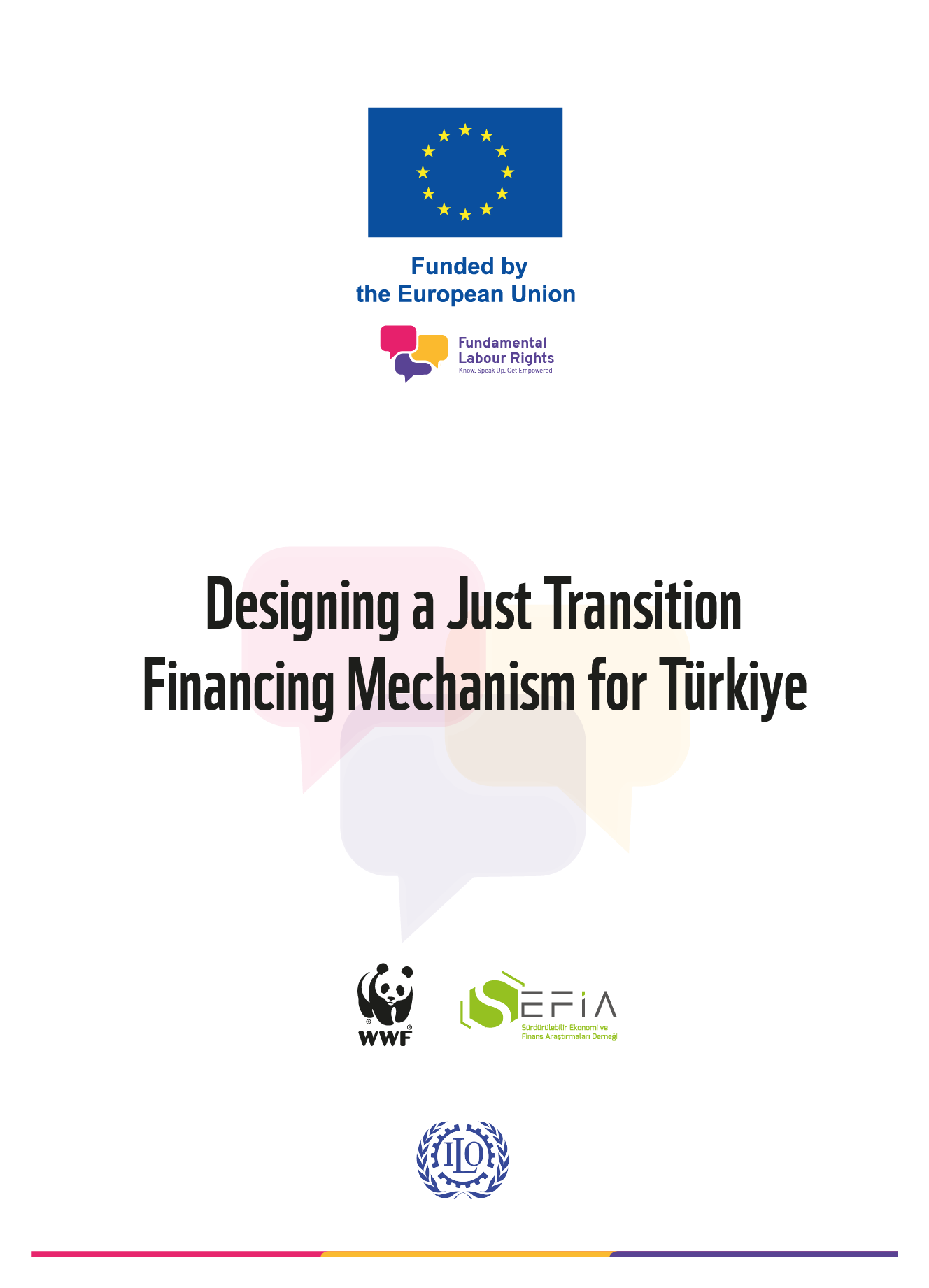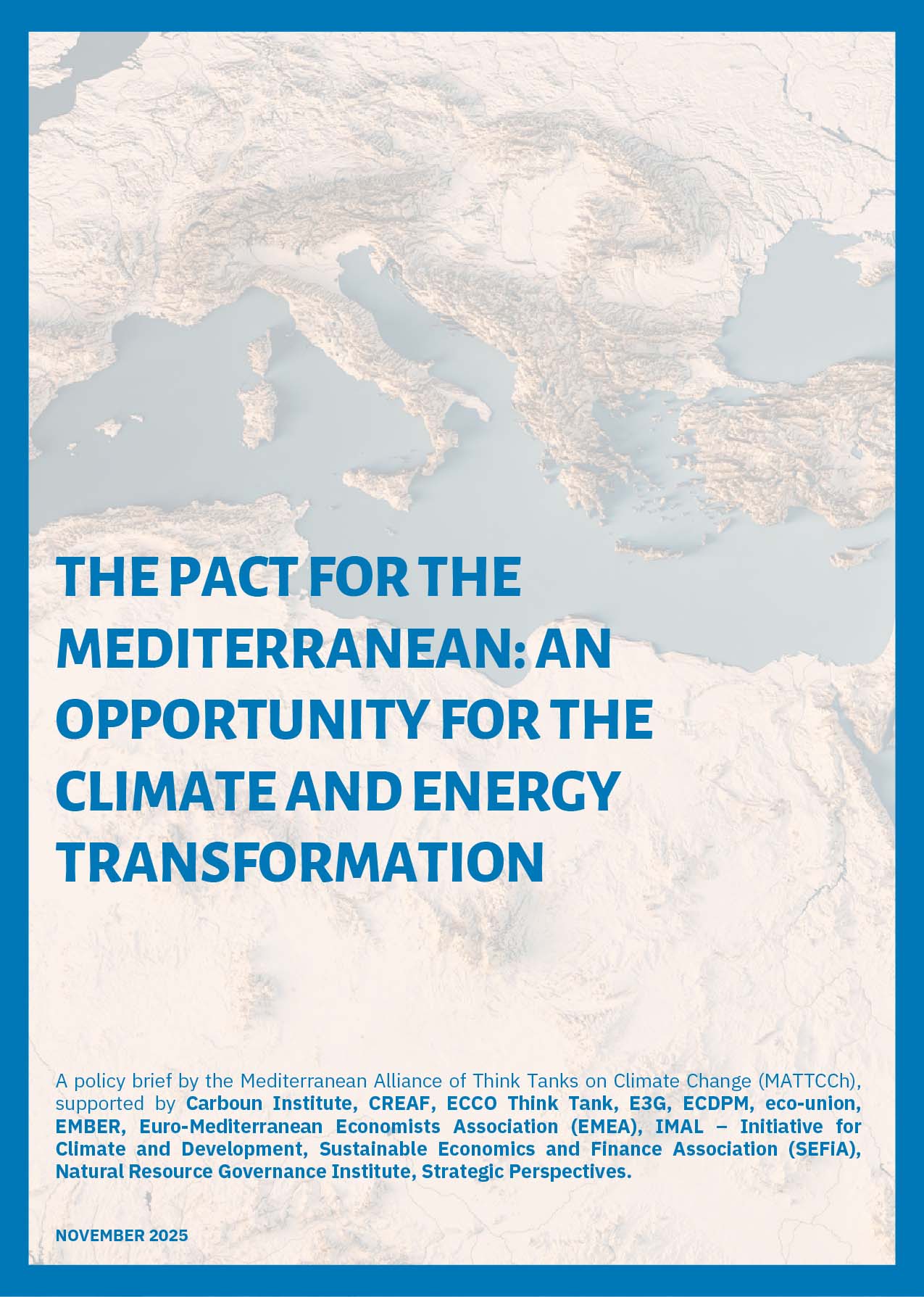This policy brief, facilitated by the Mediterranean Alliance of Think Tanks on Climate Change (MATTCCh) and supported by CREAF, ECDPM, ECCO, eco-union, E3G, EMEA, IEMed, IMAL, IPC, SEFiA, TEPAV, and ZERO, aims to highlight the critical role of climate action within the proposed New Pact for the Mediterranean. It argues that for the Pact to be truly effective and sustainable, addressing the climate crisis must be deeply integrated across all its priority areas, ensuring a targeted and organic response to the region's multifaceted challenges.
The European Union’s New Pact for the Mediterranean offers a vital opportunity to strengthen cooperation across the region, with climate action emerging as a critical priority. Given the Mediterranean’s extreme vulnerability to climate impacts and the essential role of decarbonization for its future prosperity, the Pact must integrate climate solutions across all sectors. This includes ambitious initiatives like the “TeraMed” vision, aiming for 1 Terawatt of renewable energy capacity, alongside significant investments in energy efficiency, grid modernization, and cross-border electricity connections. Prioritizing resilience, adaptation, and addressing climate-related loss and damage through an integrated Water-Energy-Food-Ecosystem (WEFE) approach is crucial for regional stability and security.
To ensure the Pact’s success, enhanced cooperation between both shores of the Mediterranean is essential, leveraging shared potentials against intertwined economic and security challenges. This requires expanding international climate finance, improving access to affordable funding for sustainable development, and aligning public funding with regional priorities. The Pact must foster inclusive governance with Southern partners, ensuring shared ownership and durable collaboration to effectively embed climate action—including nature-based solutions—across all relevant agendas, from economic stability to security and development.






